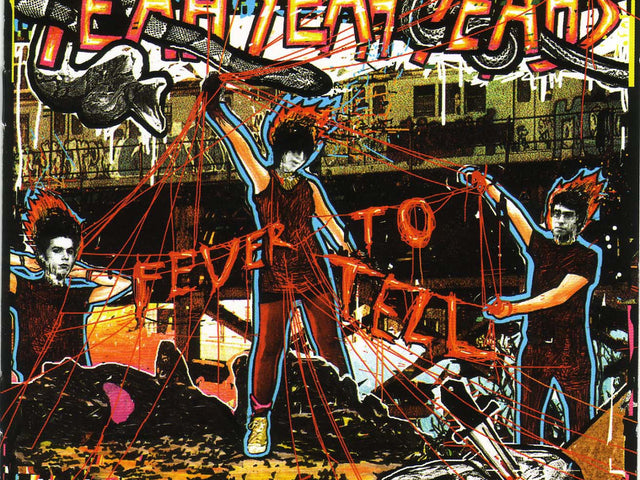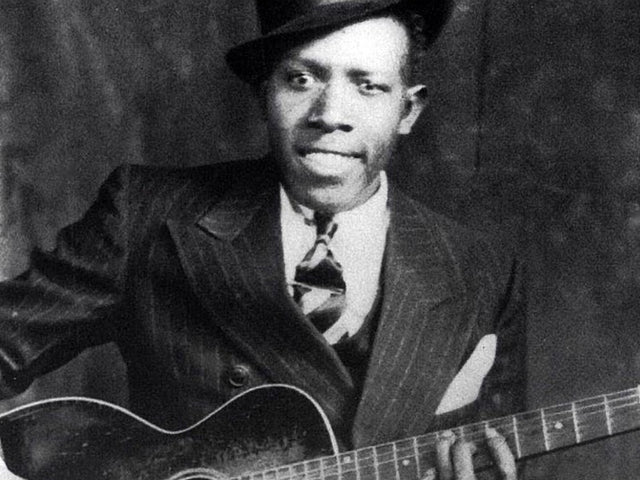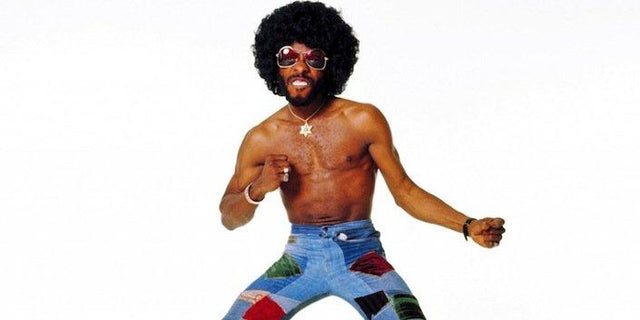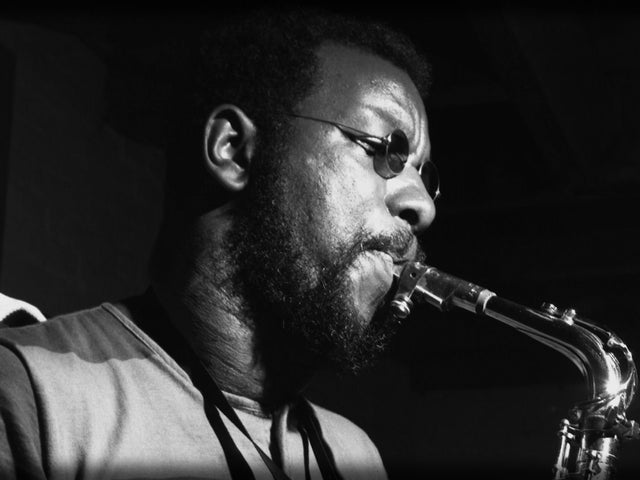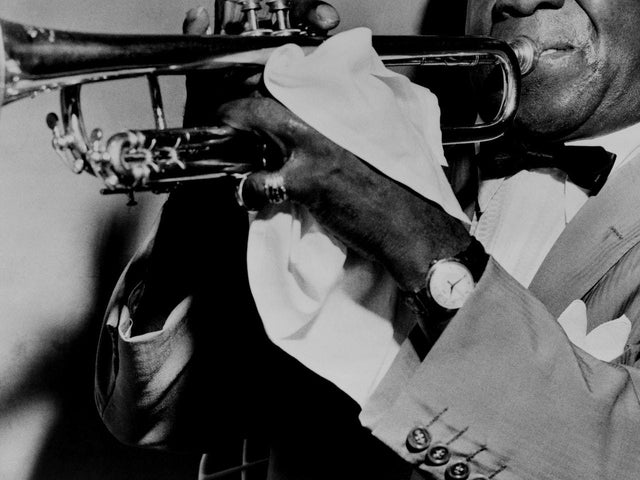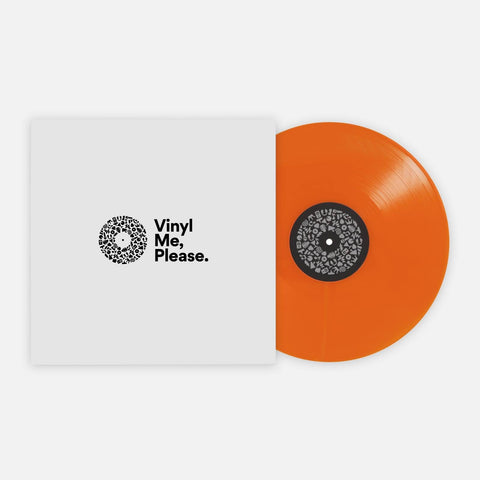When the Hardcore Punk scene began to construct itself across America in the early 1980s, it empowered a gaggle of forward-thinking young people to form bands, edit fanzines and start record labels to represent this new and uncompromising form of music sprouting up in their backyards. The small handful of labels documenting their local scenes at that time included Southern California’s Epitaph Records, The Midwest’s Touch & Go, Boston’s X-Claim! and possibly the most important of them all, Washington D.C.’s Dischord Records. Founded by Ian MacKaye and Jeff Nelson—members of two of the capital’s first Hardcore bands Teen Idles and Minor Threat—the label is responsible for laying the ethical bedrock on which many independent labels operate to this day via their staunch commitment to DIY principles and putting expression over profit.
Besides sticking to strictly releasing bands only from the D.C. area and holding true to their own business model for the past 38 years, they’ve also managed to shoot out an astounding number of great records by taking the spirit of their loud-fast-rules beginnings and spinning it into various uncharted territories. With bands such as Rites of Spring and Embrace, the label unconsciously founded the “emo” branch of punk while also releasing albums by such singular units as Shudder To Think, Marginal Man, Rain Like The Sound Of Trains, Beefeater, Slant 6, Lungfish, El Guapo and hundreds more that unwittingly defined and dismantled genres throughout the still-unfolding history of the imprint.
To dive in and whittle down Dischord’s massive catalog to 10 essential records is a very daunting task. But after much personal debate and countless cups of coffee, I would like to present a list made up of the markers in the labels’ lineage where new ground was broken by both the pioneers of the label and their sonic offspring alike.
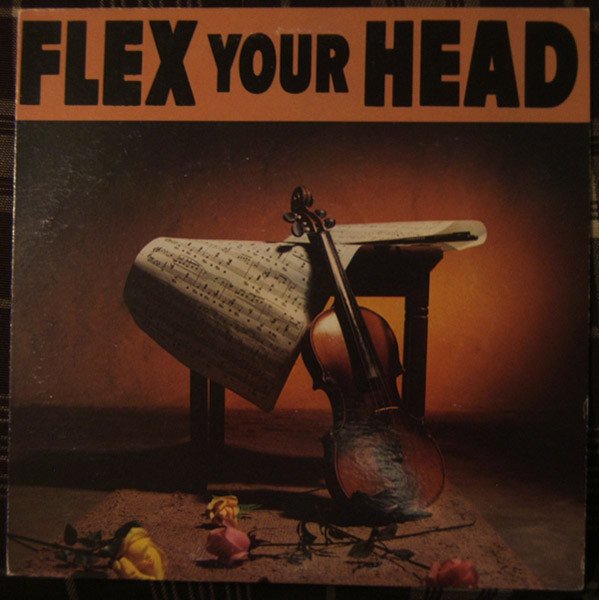
Various Artists: Flex Your Head
In the early stages of the American Hardcore Punk scene, regional compilation albums were passed around almost like business cards in order to establish a presence on the flourishing national scene while also displaying the distinctions in sound from town to town. Released in early 1982, D.C.’s entry into the national fishbowl was Flex Your Head, a 32-song, 11-band collection which provided a vivid snapshot of the scene in the nation’s capital, despite how rapidly it was developing. For example, the first three bands presented on the album—The Teen Idles, The Untouchables and the Henry Rollins-fronted State of Alert—were already long broken up by the time the compilation was released. And technically, even the legendary Minor Threat were broken up for a spell at the time of Flex Your Head’s release. But even without the aforementioned units, the compilation showcases the wide range of styles being explored within the confines of the genre; from the British punk-inspired Iron Cross to the unconsciously Avant Garde Red C. If you’ve never heard Flex Your Head, do yourself a favor and give it an ear. I think you’ll agree youthful raw invention has never sounded so glorious.

Minor Threat: Minor Threat
When Minor Threat put out their initial two seven-inch EPs back to back in 1981—the self-titled eight-song EP as well as the five-song In My Eyes—they were nothing short of a warning shot that a new form of punk was being assembled, which held onto to the musics’ anger but ratcheted up the speed while tying in a youthful intent. After pressing 8,000 copies of both records combined in a scant two years, the band decided to release both of them on one handy-dandy 12-inch in 1983. If the lyrics to pro-sobriety songs such as “Straight Edge” or “Out of Step” do not display the band was coming from a whole new school of thought, maybe the dynamics and complexity of the tunes will prove it to you. Either way, these songs will forever boil the blood of anyone young or old with a conscience and a pulse.

The Faith/Void: Split LP
Another unique thing brought to the table by Hardcore Punk was the idea of releases split between two bands. It seemed if two groups had too much material for a seven-inch EP and not enough for a full length, the issue was solved by combining forces to release one kick-ass LP which gave you more bang for your buck by introducing you to two bands rather than just one. At a time when Hardcore punk bands were starting to go through the motions of what some critics would deem “generic thrash,” Void provided something completely alien from the proceedings. With their guitarist Bubba Dupree—undoubtedly the Hendrix of D.C. Punk—the band gave up 12 songs of wonderfully misshapen psychedelic Hardcore angst that still boggles minds to this day. On the other side, The Faith—fronted by Dischord co-founder Ian MacKaye’s brother Alec—always gets a bum rap from those lured to the record by Void being namechecked by hip types. And yeah, what they dished out might not be as gnarled sounding as Void, but it is potent in its venomous and spirited delivery via tracks like “What’s Wrong With Me?” “You’re X’ed” and the remarkably disorienting closer, “In The Black.”

Rites of Spring: Rites of Spring
When the ’80s hit their halfway mark, many of the pioneers and early fans of the Hardcore scene wondered how far you could take a sound that was already repeating itself so early on in its inception. The answer to this dilemma for the D.C. scene was forming bands which retained the untreated execution of the earlier bands, erased the macho posturing and presented something more melodic. Out of the cannon of albums Dischord released at the time which followed this trajectory by bands like Embrace, Beefeater and Grey Matter, the 12-song full-length from Rites of Spring from 1985 perfectly exemplifies this execution, with its jangly guitar sound combined with Guy Picciotto’s unhinged vocals and introspective lyrics. I will begrudgingly call this record the beginnings of what would later be termed “Emo-Core,” but one listen to it will reveal it to be so much more than that.

Dag Nasty: Can I Say
While the rest of his local scene moved into different musical directions, Minor Threat guitarist Brian Baker felt that maybe people still wanted something from D.C. that maintained the fast and powerful sound the area was known for not that long ago. So, in 1985, he formed the band Dag Nasty, which successfully walked the tightrope of utilizing the tight-and-fast intricacies of his previous band without presenting it as a too-soon revival show. Recorded with the bands’ second vocalist Dave Smalley—formerly of the burly Boston Hardcore unit D.Y.S.—Can I Say sounds like the full-length Minor Threat never got around to committing to tape with Smalley’s earnest vocal delivery on tracks like “Justification” and “Never Go Back” still managing to raise the hackles all these years later.

Soul Side: Hot Bodi Gram
If any band represented the second generation of D.C. natives who learned from the trailblazers before them, it would be Soul Side. Formerly known as Lunchmeat, the band originally ticked all the boxes of a young band from the area in the late ’80s with their highly political and pointed lyrics and a booming bass sound inspired by dub reggae. But during a three-month long tour of Europe in 1989, the band recorded Hot Bodi Gram, their only full-length for the label and quite a departure from their previous vinyl outings. Apparently recorded in a fug of dope smoke in Holland (surprise! surprise!) it comes off almost intentionally vague lyrically, while guitarist Scott McCloud’s hazy, grating guitar sound would conjure up the notion of Sonic Youth if they were raised in the district. Capped off by a feedback laden rendition of Patsy Cline’s “Crazy,” Hot Bodi Gram is most certainly one of the most adventurous albums in the Dischord catalog and, sadly, out of print in the vinyl format.

Fugazi: Repeater
From their start in 1987, the Ian MacKaye-led Fugazi was a force to be reckoned with on every level. Musically, they were a dizzying reimagining of the members listening habits which included second wave U.K. punk like The Ruts and The U.K. Subs, Fela Kuti, local Heavy Metal gods The Obsessed and the odd early Queen tune or two. Philosophically, they held fast to the notion that music should be available to people of all ages for an affordable price. On their debut full-length, these influences and concepts weave to produce a startling listen; the audio equivalent of a roller coaster ride careening down the tracks at a breakneck pace. Word-wise, songs like “Greed,” “Blueprint” and “Merchandise” spell out why the band was not to be fucked with in regards to their intent. Or as the chorus in the latter song states: “We owe you nothing / You have no control.”

Shudder To Think: Funeral At The Movies
By the time the ’90s crept up, it was accepted in the underground that Dischord were musically far removed from the stubble-headed aggro they broke ground with almost 10 years earlier. However, it still did not prepare some for Shudder To Think when they emerged on the label at the time. The band's’ first two full-lengths, Curses, Spells, Voodoos, Mooses (1989) and Ten Spot (1990) exhibited a driving and distinctively dreamy pop sound that made some people wince in confusion; myself included. But once Funeral At The Movies was released in 1991, it was impossible not to give in to their infectious ways. Buoyed by the lilting vocals of Craig Wedren, the seven-song12-inch EP—which included a cover of Jimi Hendrix’s “Crosstown Traffic”—is possibly the most mystical release on the label, providing a headrush of ethereal sounds just as compelling as any shoegazing unit from across the pond who were getting hyped up at the time.

Lungfish: Feral Hymns
With 12 releases on the label dating back to 1992, the Baltimore-based quartet Lungfish are certainly Dischord’s longest-running concern. Although it’s difficult to choose one album from their vast catalog, I’d say 2005’s Feral Hymns encompasses all the elements which has the band both retaining and gathering a cult following to this day. Hypnotic and heavy like a Teutonic version of Black Sabbath and accompanied by vocalist Daniel Higgs’ warbly howl, the 10 songs that make up this album are the perfect soundtrack for a staring contest with your ceiling while flat on your back, soaking up the aura of your carpet.

The Messthetics: The Messthetics
If further proof is needed about the longevity of Dischord’s streak of stellar albums, may I please direct you to their latest release by the trio The Messthetics. Made up of the rhythm section from Fugazi (Bassist Joe Lally and drummer Brendan Canty) and avant Jazz guitarist Anthony Pirog, the band present nine instrumental tracks that brood with the same fiery musical tension and strength King Crimson exhibited on their last two albums from the ’70s, Red (1974) and USA (1975). And even though there is no doubt all three artists here most certainly have “chops,” they are presented with a modesty learned in the basements and squats of punk and not on the floor of a music instrument chainstore. Do yourself a favor and dig into this album to hear what this influential label is presenting in the here and now.
Tony Rettman is the author of three highly regarded books on the history of American Hardcore Punk: Why Be Something That You’re Not: Detroit Hardcore 1979-1985 (Revelation Records Publishing, July 2010), NYHC: New York Hardcore 1980-1990 (Bazillion Points, December 2014) and Straight Edge: A Clear Headed Hardcore History (Bazillion Points, November 2017) His writing has appeared in The Village Voice, Vice, The Guardian, The Wire and Red Bull Music Academy.
Join the Club!
Join Now, Starting at $36Pages

